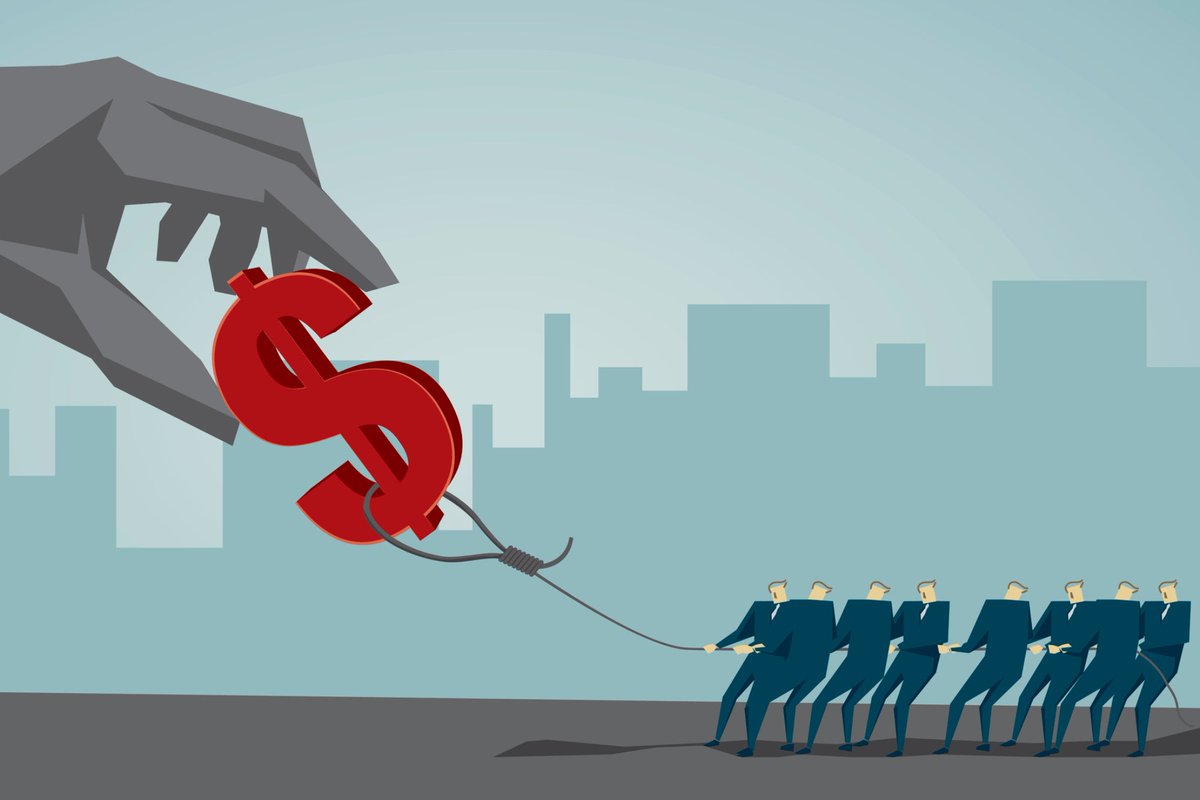Inflation and recession are two main components of the overall economy, which means that these phenomena or problems generally affect the economy as a whole, so that both can affect unemployment rates, the purchasing power of currencies, and the ability of the country’s economy to grow properly and correctly, in addition to many other things. Other aspects, and because they are two important and somewhat complex terms, most individuals or entities may not be able to tell the difference between the two, so we will explain the difference between the concepts of recession and inflation in detail in this article.
What is meant by both recession and inflation?
The concept of recession refers to a significant decline in the economic activity of a particular country during a period. Analysts and economists define stagnation as the general economy’s continued decline and deterioration over two consecutive quarters of the same year, and this can be seen through the decline in the gross domestic product, which is reflected in turn on various economic indicators, such as high unemployment rates and individual income levels, for example, and it should be noted that stagnation is less severe or harsh on the economy than recession.
While the concept of inflation refers to the decrease in the purchasing power of a country’s currency over time, through this it is noted that there is a general rise in commodity prices as a result of inflation, which means that individuals will buy a smaller group of products with the same previously paid value of the currency, and this is considered a negative. Inflation is a reflection of the concept of economic deflation.
What is the difference between a recession and inflation?
Recession is not the same as inflation because each concept has different effects and consequences.The difference between recession and inflation can be determined by understanding the following aspects:
The definition
The main difference between recession and inflation lies in understanding each of their terms, so that stagnation is defined economically as the total decline in economic activity as a result of the decline in gross domestic product over two consecutive quarters, but on the other hand, inflation refers to the decrease in the purchasing power of the currency in the country in exchange for the noticeable increase in the prices of goods and services provided by the state during a specific period.
The reasons
Reasons for the recession
Among the general reasons for the occurrence of a recession are the following:
- Low consumer confidence in the economy will be reflected in the amount of spending that individuals make and their tendency to consume only necessities.
- High rates of unemployment, which in turn means that they do not have stable sources of income, thus affecting the spending levels of individuals and the volume of sales.
- High interest rates limit the availability of necessary liquidity and create a negative impact on foreign investment.
increased government restrictions and oversight of the economy.
The causes of inflation
Among the general causes of inflation are the following:
- A noticeable increase in the volume of demand for some goods or services at a rate higher than what the country’s economy can produce or absorb during a certain period of time leads to a gap between supply and demand.
- The high cost of production and operation, which eventually pushes up the prices of goods and services.
- The existence of previous inflation is based on previous problems or incidents that occurred in the economy during the past periods, leading to an increase in employee wages, which will be reflected in the increase in the costs of products and services.
Measurement method
Economic stagnation and its impact on the country are measured by continuously monitoring gross domestic product (GDP) indicators to notice the changes that may occur to it over time, while inflation can be measured through the use of wholesale price indicators (WPI) and the consumer price index (CPI).

Their respective periods
Recession can occur only in the presence of certain economic conditions such as changing interest rates, the collapse of the stock market, and others, while inflation can occur at any time due to its continuous impact on the economic situation of the state at any possible moment.
The consequences of both of them occurring
The occurrence of a recession has many consequences and effects in the long term, but it can cause short-term effects that may exacerbate and affect many aspects in the long term. For example, when a stagnation occurs, companies are forced to lay off their employees, which will not enable individuals to secure their basic needs for their families, and this may also affect their opportunity for education and provide them with a healthy environment suitable for them on a long-term level if the crisis continues for a longer period. On the other hand, inflation may affect encourage investment in the country and increase production and public consumption in it, but at the same time it will exacerbate the economic situation by increasing inflation, not reducing it.
Read also: Top 21 apps every smart entrepreneur needs



